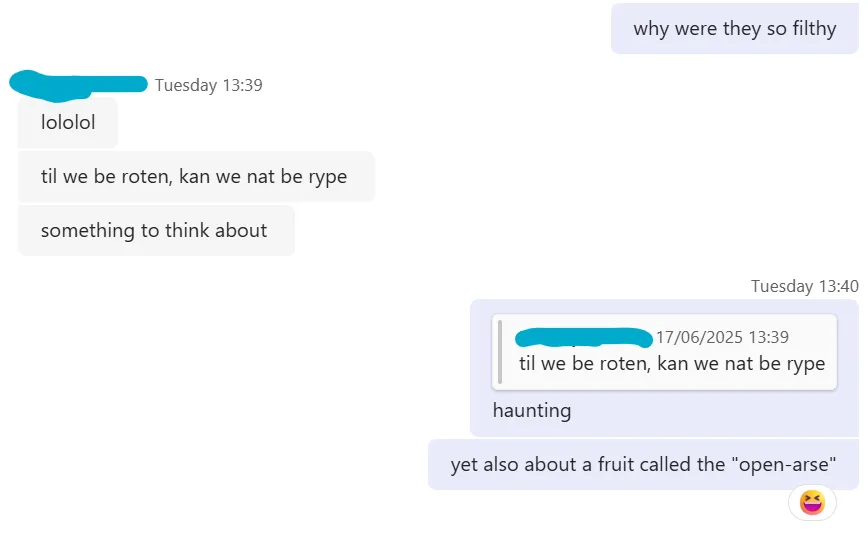Til we be roten, kan we nat be rype
From a cryptic crossword the other day I was introduced to the medlar fruit.
(The clue was 22d Caught one poking nose in fruit which is annoying as it's a "sounds like" clue - 'medlar' sounds like 'meddler' (one who pokes their nose in - which you can really only get if you always know of the fruit).
Anyway, the medlar turns out to be quite interesting. It's a pretty archaic fruit - common from Greek and Roman times through to the middle ages, it fell out of favour and was replaced by other fruits as it's a bit of an acquired taste (in the UK anyway - apparently it's still eaten in other parts of Europe). It's also unusual in that it grows throughout the winter, so it was a good fruit source in the UK before we had access to other fruits all year round.
The fruit is hard and acidic even when ripe, and must be softened by other means - bletting (a process where you let fleshy fruits soften after picking by leaving them in storage) or by frost etc.
Culturally the medlar "A fruit which is rotten before it is ripe" was used as the basis of a lot of bawdy symbolism in medieval literature, and as an allusion to prostitution.
I had a conversation with a friend about this Chaucer verse, in which wikipedia notes "...he names using the Middle English term for the fruit, "open-arse"". (The bbc article puts it a bit more demurely - the strange medieval fruit with the vulgar name).
This white top writeth myne olde yeris;
Myn herte is mowled also as myne heris —
But if I fare as dooth an open-ers.
That ilke fruyt is ever lenger the wers,
Til it be roten in mullok or in stree.
We olde men, I drede, so fare we:
Til we be roten, kan we nat be rype; Chaucer
 Here's our conversation
Here's our conversation